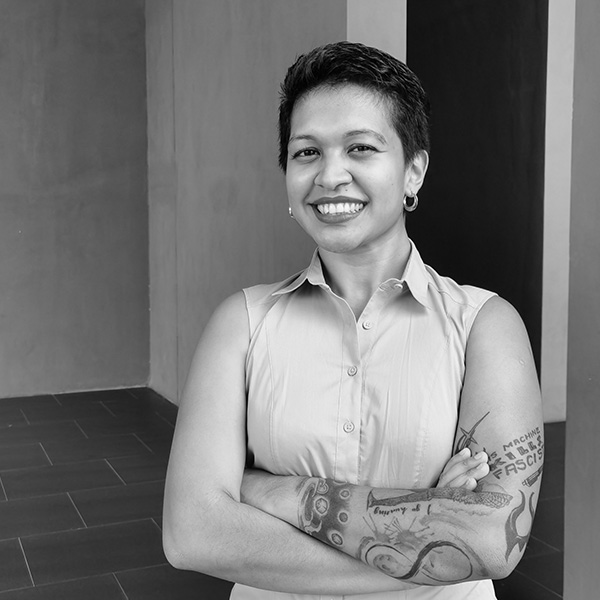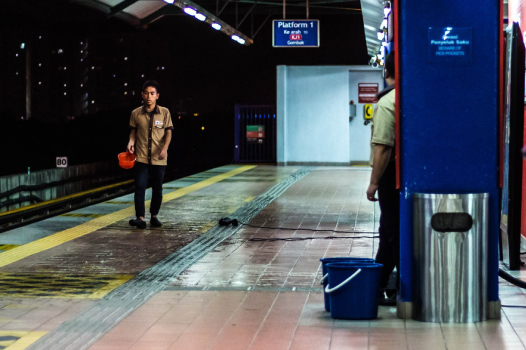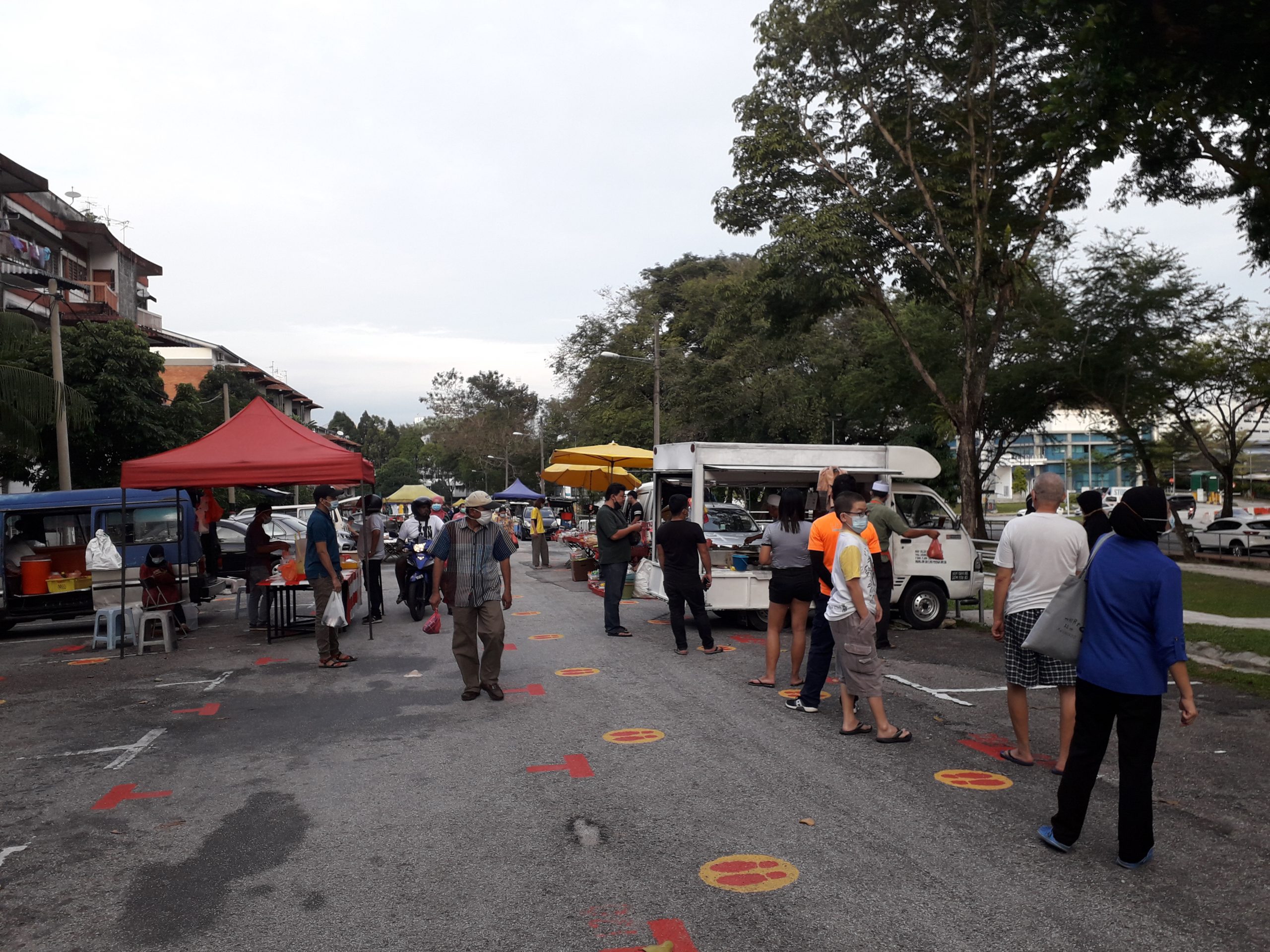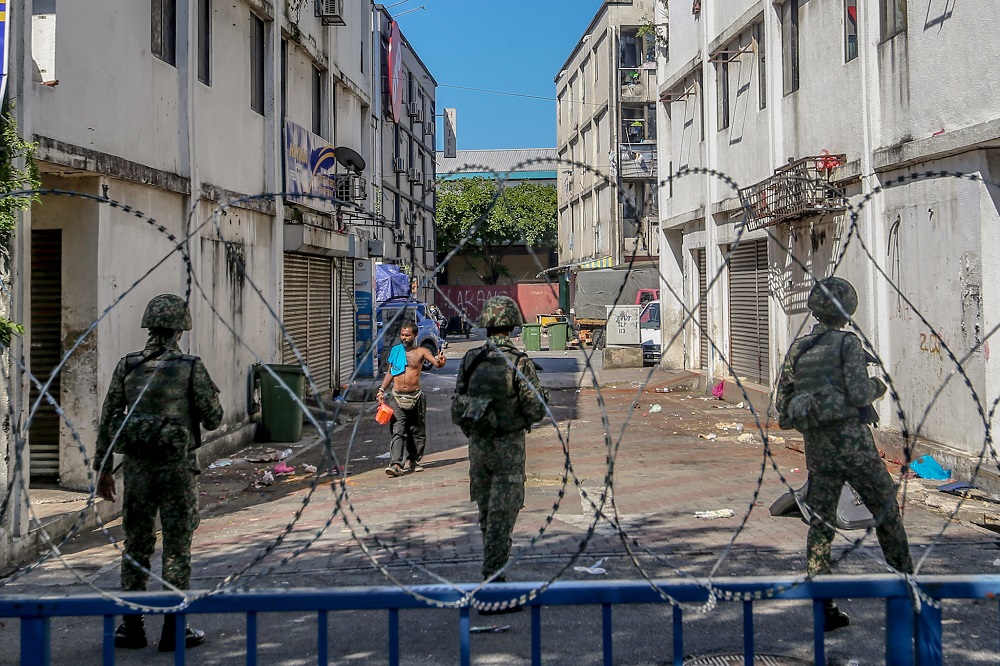On Saturday 26 April, the Malaysian Institute of Economic Research (MIER) sent congratulatory notes to Malaysian frontliners in the COVID-19 battle and proclaimed that Malaysia has successfully cured 32.7% of its COVID-19 cases, the highest in the world, whose average was only 21.01%, while our case fatality rate (MIER, 24 April, 2020) was only 1.63% as opposed to the world average of 5.49%. It went on to state, this “proves that the government has done right and our healthcare is among the best and our frontlines are excellent!” (MIER, 2020). Chest beating is a common phenomenon in the Malaysian media, for better or for worse. It created a sense of jubilancy among a section of the population who are under lockdown. Perhaps it gives legitimacy to the government who recently took over stewardship after an abrupt coup through realignment and creation of a new coalition of parliamentarians and political parties. Tan Sri Muhyiddin Yassin then was appointed by the ruler to be the 8th prime minister of Malaysia.
The earliest cases of COVID-19 in Malaysia were confirmed on January 25, 2020, among tourists from Wuhan and Guandong, China, which may be the origins of the community spread in Malaysia. This date was two days after Wuhan, a city of 11 million people implemented its full lockdown on January 23, 2020 under the order of the Chinese central government.
The Tabligh Cluster
An international religious convention was organized by the Tablighi Jamaat totaling up to 16,000 participants at the Jamek Mosque in Sri Petaling in Kuala Lumpur from February 27 to March 3, 2020 (Asia Sentinel, 2020). Attendees to the gathering came from various countries in Southeast Asia totaling about 1500 people. As this was a religious event, participants sat close to each other, held hands, greeted each other and shared food which was eaten using their hands. However, as Muslims, they observed washing their hands repeatedly before and after meals, apart from ablution practices. Many people at the gathering were believed to be infected by the COVID-19, which became known as the infamous Tabligh cluster. A few weeks later this cluster became the epicenter of COVID-19 in Southeast Asia with subsequent generations of transmission of the virus. By mid-March, almost two thirds of cases confirmed in Malaysia were related to the above cluster. Despite the blame placed on Tabligh followers by some segments of the population, they were very cooperative in getting themselves tested as requested by the ministry of health. Even so, there are still thousands of participants that cannot be traced by the Malaysian health authorities.
Movement Control Order (MCO) and Enhanced Movement Control Order (EMCO)
The MCO is the prohibition of mass movements and gatherings nationwide including religious, sports, social and cultural activities. All houses of worship and business premises were instructed to be closed, except for supermarkets, wet markets, sundry stores and convenience stores selling everyday necessities. For Muslims, they have to adjourn all forms of religious activities in mosques, including Friday Prayers as decided by the Special Muzakarah Committee Meeting of the National Fatwa Council on 15 March 2020.
The first MCO commended on 18 March 2020, with the implementation of strict measures. On 25 March, Prime Minister Muhyiddin Yassin through a live national telecast, announced that the control order would be extended to 14 April. In addition, from 27 March, specific locations were subjected to a stricter order, dubbed “Enhanced Movement Control Order” (EMCO), for 14 days if a large cluster was detected within the area in order for the government to conduct thorough COVID-19 test with all residents, and to curb the spread of the virus out of the areas. The orders included:
- Forbidding all residents and visitors within the area to leave their homes during the order
- Non-residents and visitors outside the area were not allowed to enter into areas subjected to the order;
- All businesses were shut down;
- Adequate food supplies would be given by the authorities during the 14 day-order to all residents;
- A medical base would be established within the area;
- And all roads into the area were to be blocked.
It should be noted that the government’s actions in issuing the MCO is under the auspices of the Prevention and Control of Infectious Diseases Act 1988. By virtue of Section 5 of the Prevention and Control of Infectious Diseases Act 1988, the Health Ministry, is the main authority in charge. However, the directives under the MCO are issued by the National Security Council (NSC) according to the minister in charge of security and handling of MCO directives. To the people on the street or households who have to make ends meet day by day, they were suddenly faced with economic hardships due to restricted movement. Reports on the high handedness of certain security officials towards aid distributors and NGOs kept popping in the social media among the disgruntled public.
“To the people on the street or households who have to make ends meet day by day, they were suddenly faced with economic hardships due to restricted movement.”
Strange as it may be, the authorities were focusing on the MCO first. They have probably forgotten that this is a disaster. And as with most disasters, the focus should be on bringing in resources to fight this, and not just on ensuring that nobody steps out of the MCO. Though we do not dispute that the MCO is necessary, this in itself will not flatten the curve (Covid-19). The authorities must make sure that people’s basic needs are being met, providing updated information and help to build resilience among communities. To be successful, we need to shift away from the lens of law and order, and start looking at this through a public health disaster lens, as they are two different ways of working – one is punitive, the other, supportive.
Economic Stimulus Packages
There have been three economic packages announced by the government during the COVID-19 crisis. The general aims are to mitigate the impact of COVID-19, spurring people-centric economic growth, and promoting quality investments. The first package of RM 20 billion (US$4.6 billion) was announced during the interim premiership of Tun Mahathir Mohamad on 28 February, followed by a RM250 billion (US$ 58 billion) package unveiled by the new prime minister Tan Sri Muhyiddin Yassin on 27 March known as the caring package, and the third, worth RM 10 billion (US$2.3 billion), a special package to help small and medium industries, was announced on 6 April. Malaysians who are working in the public sector (>1.5 million) were fortunate during the MCO as they were also given financial aid, despite no loss in salaries or privileges during the MCO. However, those working in the lower rank of the private sector and daily wage earners were the ones hit hardest by the MCO as they lost their jobs or their business were forced to closed.
Contemplating the Future
According to Muhyiddin in his few addresses, he repeatedly mentioned that the MCO was costing Malaysia RM 2.4 billion (US$ 550 million) a day. Thus, the road to recovery is eagerly anticipated. However, everything depends on the impact of the levels of COVID-19 infection. Despite having a well-managed Ministry of Health during the current pandemic, the burden on them has been too heavy. What has been lacking is the creation of a high-level national task force, whose members should consist of experts not only from health, but also the security sectors. The Ministry of Health is limited in its capacity in dealing with the multiple needs or threats faced by the population during the pandemic. The role of non-governmental organizations has been tremendous in lifting the suffering of the underserved section of the population, particularly in urban areas. However, their critical role has not been credited proportionately and seemed to be in contrary to security measures, with so many restrictions and permits or passes requirements, even for serving a simple meal to the starving underclass.
Another aspect which need to be given proper attention is the flight of migrant workers (legal and illegal), as Malaysia has the highest number of migrant workers in Southeast Asia, probably up to 6 million. The outbreak of COVID-19 among foreign workers in Singapore at the end of April serves as a lesson be vigilant in testing those people who have eluded the Ministry of Health’s radar.
How Muhyiddin has managed the pandemic for political gain is yet to be discerned as lot of things under the lockdown have not been transparent. Nevertheless, the government has indicated it was in control and to date, the MCO has been extended three times.
As we navigate toward tomorrow, we have to be optimistic, whether we are awaiting for the new normal or just returning back into the old fold, every cloud has a silver lining. Yet, we cannot trade health for economic recovery, as the global contagion has taught us a lesson that COVID-19 does not differentiate by class, creed or geographical location. To paraphrase Slavoj Zizek from his latest book Pandemic!: Covid-19 Shakes the World (2020), “the moral task during this pandemic is to alleviate suffering, not to ‘economise’.” We must approach COVID-19 blitzkrieg head on, with calm and humility.
30 April, 2020
References
- Adib Povera. RM250 billion stimulus package announced, New Straits Times, 27 March, 2020 https://www.nst.com.my/news/nation/2020/03/578692/rm250-billion-stimulus-package-announced (accessed 1 May 2020)
- Asia Sentinel, Malaysia’s Health Czar Under Fire, 23 April, 2020 https://www.asiasentinel.com/p/malaysias-health-czar-under-fire?utm_campaign=post&utm_medium=web&utm_source=facebook&fbclid=IwAR1HuOiIAwZQAhKx7JRM5s4NMmmsyeZpgqziiG5GEFc0R4qVt9Bz2wc0fs8 (accessed 1 May 2020)
- Bernama. RM20 billion for 2020 Economic Stimulus Package, New Straits Times, 27 February, 2020 https://www.nst.com.my/news/government-public-policy/2020/02/569759/rm20-billion-2020-economic-stimulus-package (accessed 1 May 2020)
- Malaysian Institute of Economic Research (MIER), 24 April 2020 https://www.mier.org.my/
- Muhyiddin unveils RM10bil stimulus package for SMEs (updated), The Star, Monday, 6 April 2020, https://www.thestar.com.my/news/nation/2020/04/06/muhyiddin-unveils-rm10bil-special-stimulus-package (accessed 1 May 2020)
- Zizek, Slavoj. 2020. Pandemic!: Covid-19 Shakes the World. OR Books: New York.
Wan Abdul Manan Wan Muda is currently a Visiting Professor in Alma Ata University, Yogyakarta, Indonesia. Previously he was Professor of Nutrition & Public Health in the School of Health Sciences, Universiti Sains Malaysia, Visiting Senior Fellow of Khazanah Research Institute (KRI), Kuala Lumpur and a former Kyoto University CSEAS fellow. His area of research and interest are human nutrition, obesity, public health, quality of life and issues confronting higher education. He recently published the following monograph: Wan Manan Wan Muda, Jomo Kwame Sundaram and Tan Zhai Gen (2019) Addressing Malnutrition in Malaysia. Khazanah Research Institute Discussion Paper 7/19, 19 September 2019
Citation
Wan Abdul Manan Wan Muda. 2020. “Navigating Solicitudes in the Times of Pandemic” CSEAS NEWSLETTER, 78: TBC.





